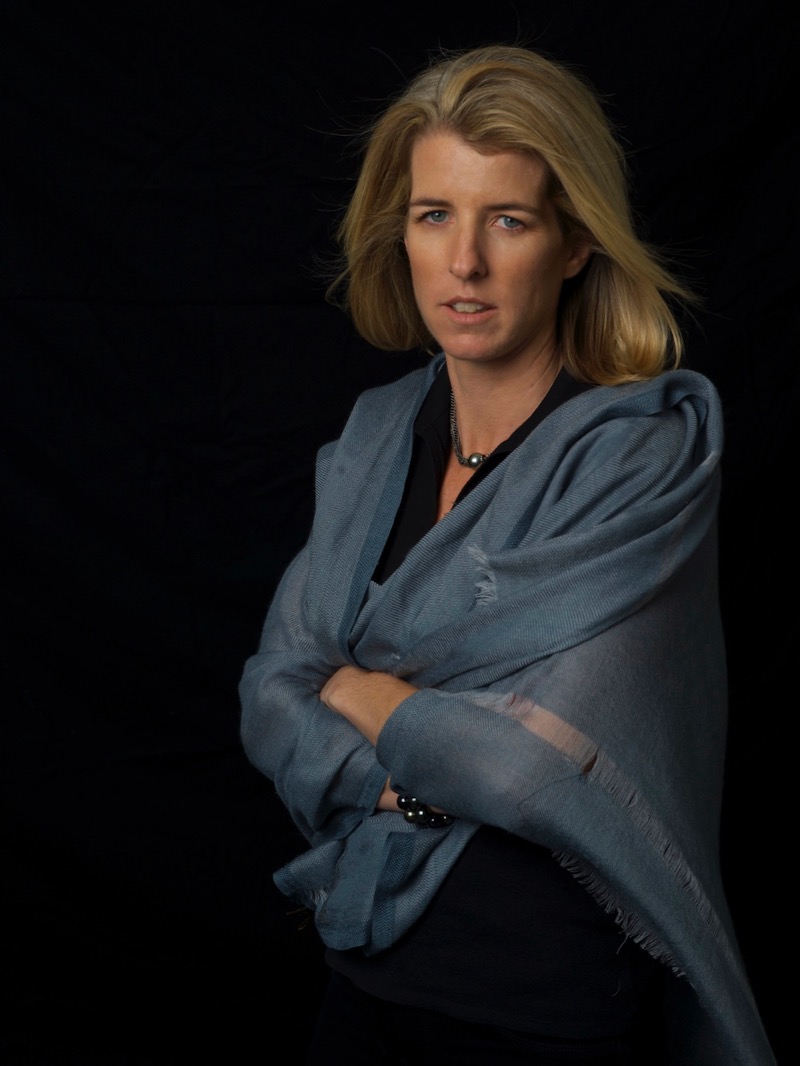
[caption id="attachment_67012" align="alignright" width="367"] Rory Kennedy. Courtesy of Hamptons International Film Festival[/caption]
Rory Kennedy. Courtesy of Hamptons International Film Festival[/caption]
By Lindsay Andarakis
Rory Kennedy is the director of “Take Every Wave: The Life of Laird Hamilton,” a film chronicling the life, relationships and career of American surfing icon, Laird Hamilton. A pioneer of tow-in surfing, which was called a “quantum leap” in the world of big wave surfing, Mr. Hamilton was one of very few naturally gifted surfers, fearless at a very young age. Ms. Kennedy put together a film to tell a story that “hadn’t been fully told before,” about a man that lived in the moment. Casual determination got him as far as it did, and she details the challenges and rewards that came along the way.
What interested you in making a film about Laird Hamilton?
I was approached by Paul Speaker, a mutual friend of mine and Laird’s with the idea of making a documentary. First of all, I think it’s really cool to see somebody surfing these enormous waves…but I also felt that Laird had an interesting story that hadn’t fully been told before and there was an opportunity to dig a bit deeper and share his personal life. He was a great character and personality; beyond being one of the greatest surfers of all time, he is also an innovator. He changed the sport in profound and multiple ways over the course of his career and he is one of the great individualists…my hope is that it will appeal to surfers but also to the broader community of anybody who is pushing the limits, trying to be the best at whatever they’re doing; whether it’s business, politics, sports or any efforts, I think there’s something to be gained from this film.
I thought it was admirable Laird was able to go with the flow and follow his dream while adapting to change. He had an enjoyable life doing what he loved and still “made it work.” Do you think others can manage this?
I think there’s a nice lesson there and that’s part of what attracted me to this story. Here’s a guy — the film doesn’t necessarily focus on this person — but he did grow up in an abusive household with a single parent for much of the time and they lived in poverty, arguably, and he pursued his dream in the context of that and made a life for himself. Again, it’s not to say that all of us can do that, but I think there’s something about his life that we can all learn from and the importance of pursuing your dreams. There’s something really beautiful about it, actually.
He said he wasn’t into competition as much as exploration of the unknown, yet he still became so successful and maintained freedom. Do you think that’s important to being “the best?” Even one of his friends said he “found a way to compete without competing.”
I think that Laird is deeply, deeply competitive and I think that ultimately that drives him in a pretty important way. I think there’s a truth to the fact that he doesn’t compete because he’s almost too competitive…Over the course of his career, he’s been much more comfortable for example, competing in something like a running race where there’s a clear winner but less comfortable where there’s a group of judges and its more subjective and he doesn’t want to be in a position where they’re empowered to say “this guy is good or this guy is bad,” which I think ultimately speaks to some level of fundamental competition with the judges…I think he also has a natural curiosity that drives him to explore and push the limits and bounds of the sport.
Laird took risks to reach new heights. He “had been scared so many times that he had a relationship with it.” It helped him “perform better, hear, better, see better, be faster.” Is there something to people using fear to their advantage?
Absolutely. I mean it’s not to say that everybody should go try to surf an 80-foot wave but I think that we all have our own limitations and areas where fear might manifest itself. That might be, for some people, getting on an airplane or speaking in a public space, or whatever that is, it’s important to continue to push ourselves into zones which are not comfortable and not allow fear to dictate what we do and don’t do entirely. That’s not to say we shouldn’t pay some attention to fear; I think fear plays an important role in reminding us what’s safe and what’s not, but there’s this space there to be explored for every individual.
What defined him was his ability to challenge fear. After seeing friends quit and knowing the consequences of becoming afraid of the ocean, he kept on. There was bravery present in Laird’s life, would you agree?
Yes, we did a screening last night and there was some commentary about how the film is on some basic level, really about courage. I think that’s true, and when it comes to bravery and facing our own fears and facing objectively, very scary things, like being in a huge wave and going in to save your friend from drowning and knowing that you may drown yourself. Or, just going up against that wave on your own, that is all very difficult and requires a little bravery to confront it.
HIFF SummerDocs will screen “Take Every Wave: The Life of Laird Hamilton” on Friday, August 4 at 8:30 p.m. at Gurney’s Resort & Spa in Montauk. There will be a Q&A with Rory Kennedy and Laird Hamilton. Gurney’s is located at 290 Old Montauk Highway in Montauk. Tickets are $50 and can be purchased at hamptonsfilmfest.org/summerdocs.